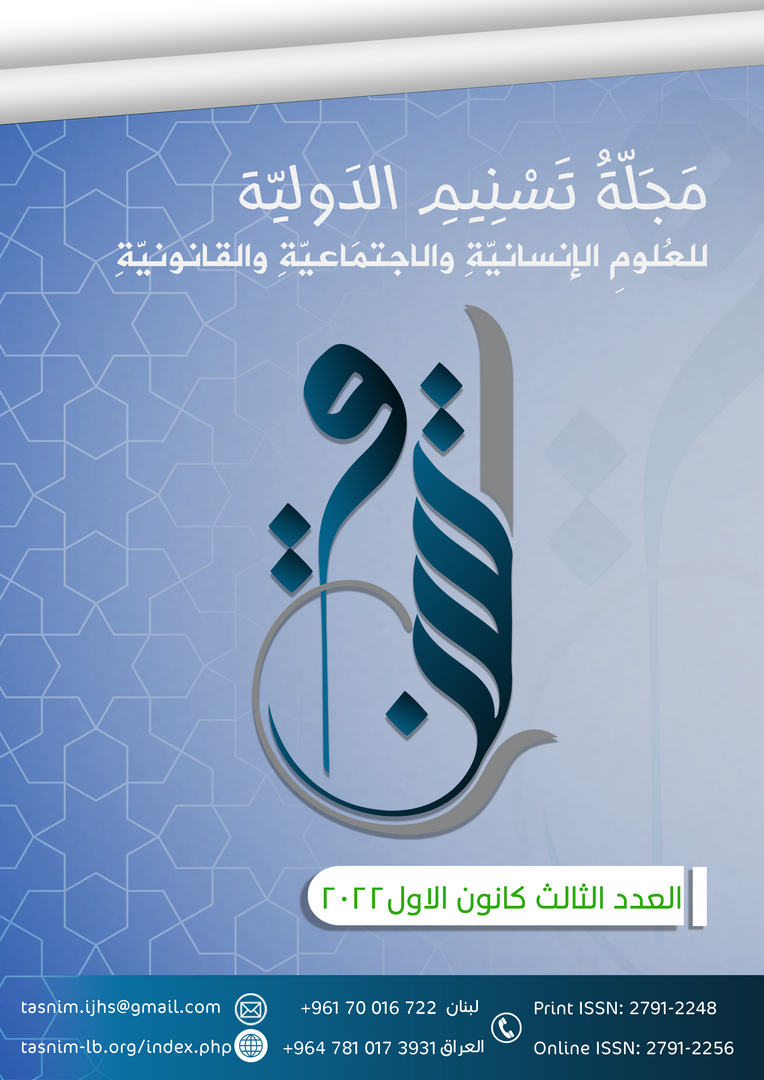المقاصد القرآنيِّة في خطاب فاطمةَ الزهراءِ (ع) الحِجاجي دراسة في الدلالة العقديّة والتشريعيّة
DOI:
https://doi.org/10.56924.tasnim.4.2022/4Abstract
In this research -study-, I addressed the (Qur’anic Arguments in the Speech of Fatima Al-Zahraa), with the most important doctrinal and legislative debates after analyzing her Qur’anic discourse. A dialogue took place between Ms. Fatima Al-Zahraa with the ruler of her time and those who agreed with him or remained silent about her plaint, as she is benefited from the Qur’anic texts in arguing with the people with clear arguments and conclusive evidence. The frequent use of the Holy Qur’an by Ms. Fatima Al-Zahraa indicates the extent of the close connection between them, as the Holy Qur’an represented an original intellectual reference in her culture, because the blessed verses frequently overlap with the joints of her controversial discourse in a great interactive relationship. It also indicates the importance of the blessed verses as the first source for Muslims in drafting their constitution and knowing their legal rulings. Ms. Fatima Al-Zahraa benefited from the clear verses that do not accept interpretation in obligating the opponent to definitive proof of the invalidity of the ruling that prevented her from her right and from the inheritance of her father PBUH, which was proven by all the prophets PBUH in the right of public financial inheritance. She denied them to single out the blessed verse after its meaning in general, as she were sarcastically surprised by their interpretation of the verses of the Noble Qur’an with the presence of Imam Ali, and he is the most knowledgeable of its subtleties, facts and rules of interpretation. The attempt of Ms. Fatima Al-Zahraa in her Qur’anic arguments with her opponents was nothing but a prelude to establishing the right of succession to Imam Ali as the legal guardian of the Noble Prophet PBUH. She used the blessed verses to show his status in Islam and his virtues, and when she felt the failure of her attempt to dissuade the people from persisting in her plaint, and gave up on deterring them from avoiding her anger and wrath, she proceeded to explain the fact that the character of faith had been stripped from them, and even branded them with hypocrisy and blasphemy because of their apostasy after the death of her chosen father PBUH - and presented them with a threat of fire and the wrath of the Mighty.
Downloads

Downloads
Published
How to Cite
Issue
Section
License
Copyright (c) 2022 Tasnim International Journal for Human, Social and Legal Sciences

This work is licensed under a Creative Commons Attribution-NoDerivatives 4.0 International License.





